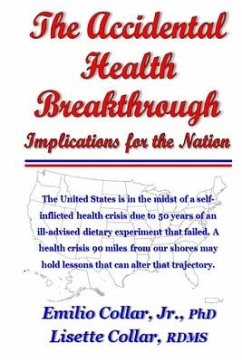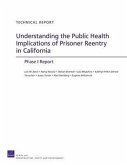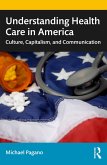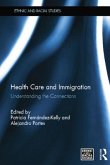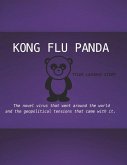The United States is dealing with a food environment that is slowly killing us. Life expectancy in the United States has been declining, attributed primarily to metabolic syndrome diseases. The U.S. is in the midst of a self-inflicted health crisis as a result of a failed 50-year-long, well-intentioned but ill-advised health experiment. We are beyond a health crisis; we are in a health calamity characterized by long-term suffering. The disaster is caused not by a scarcity of food but by an abundance of ultraprocessed, unhealthy food. On the Florida straits, 90 miles south of our shores, there may be an answer to the United States' health disaster. Cuba experienced an economic and health crisis as a result of the dissolution of the Soviet Union. The health crisis of the 1990s had an accidental health benefit. As a result, many Cubans lost weight, and the incidence and mortality rates of diabetes, heart disease, and cancer were significantly reduced. The unexpected breakthrough was especially consequential because it affected the entire country's population. What benefit does this have for us in the United States? The Cuban health crisis demonstrated that chronic metabolic syndrome diseases could be successfully prevented and reversed in a relatively short time on a national scale. How was this achieved? What are the lessons to be drawn from it? We answer those questions and look at the lessons that can be applied to the current health crisis in the United States. During our investigation, we uncovered 3 additional factors that comprehensively explained the outcomes in Cuba. If we are to remain a healthy and viable nation, we must find ways to mitigate the United States' health calamity. We offer health principles to people who want to help themselves. Furthermore, we propose a national health strategy that addresses the hidden solutions among a patchwork of choices. The strategy includes a health policy proposal as well as a new economic concept of disvaluing. When natural food is subjected to a process that alters its structure, the result is a disvalued and unhealthy food product (ultraprocessed). The disvaluing levy is a targeted tax assessed on a corporation's revenue from the sale of processed food products. The objective is to discourage the manufacture of processed foods with sugars, vegetable oils, and other harmful substances.
Hinweis: Dieser Artikel kann nur an eine deutsche Lieferadresse ausgeliefert werden.
Hinweis: Dieser Artikel kann nur an eine deutsche Lieferadresse ausgeliefert werden.

